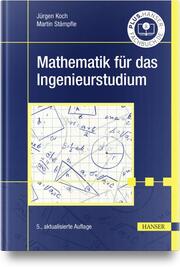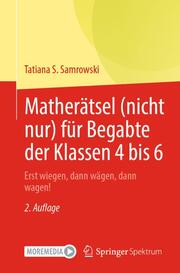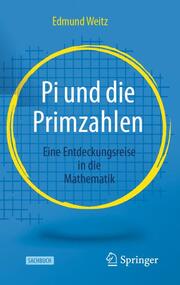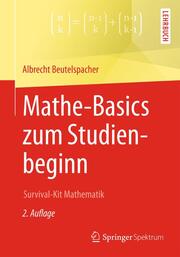Mathematical Game Theory and Applications
eBook
Bibliographische Informationen
Format: PDF
Digitale Rechteverwaltung: Adobe DRM
Beschreibung
Mathematical Game Theory and Applications
An authoritative and quantitative approach to modern game theory with applications from economics, political science, military science and finance.
Mathematical Game Theory and Applications combines both the theoretical and mathematical foundations of game theory with a series of complex applications along with topics presented in a logical progression to achieve a unified presentation of research results. This book covers topics such as two-person games in strategic form, zero-sum games, N-person non-cooperative games in strategic form, two-person games in extensive form, parlor and sport games, bargaining theory, best-choice games, co-operative games and dynamic games. Several classical models used in economics are presented which include Cournot, Bertrand, Hotelling and Stackelberg as well as coverage of modern branches of game theory such as negotiation models, potential games, parlor games and best choice games.
Mathematical Game Theory and Applications:Presents a good balance of both theoretical foundations and complex applications of game theory.Features an in-depth analysis of parlor and sport games, networking games, and bargaining models.Provides fundamental results in new branches of game theory, best choice games, network games and dynamic games.Presents numerous examples and exercises along with detailed solutions at the end of each chapter.Is supported by an accompanying website featuring course slides and lecture content.
Covering a host of important topics, this book provides a research springboard for graduate students and a reference for researchers who might be working in the areas of applied mathematics, operations research, computer science or economical cybernetics.
Autorenportrait
VLADIMIR MAZALOV,Research Director of the Institute of Applied Mathematical Research, Karelia Research Center of Russian Academy of Sciences, Russia
Inhalt
Preface xi
Introduction xiii
1 Strategic-Form Two-Player Games 1
Introduction 1
1.1The Cournot Duopoly 2
1.2 Continuous Improvement Procedure 3
1.3 The Bertrand Duopoly 4
1.4 The Hotelling Duopoly 5
1.5 The Hotelling Duopoly in 2D Space 6
1.6 The Stackelberg Duopoly 8
1.7 Convex Games 9
1.8 Some Examples of Bimatrix Games 12
1.9 Randomization 13
1.10 Games 2 ×2 16
1.11 Games 2 × n and m ×2 18
1.12 The Hotelling Duopoly in 2D Space with Non-Uniform Distribution of Buyers 20
1.13 Location Problem in 2D Space 25
Exercises 26
2 Zero-Sum Games 28
Introduction 28
2.1 Minimax and Maximin 29
2.2 Randomization 31
2.3 Games with Discontinuous Payoff Functions 34
2.4 Convex-Concave and Linear-Convex Games 37
2.5 Convex Games 39
2.6 Arbitration Procedures 42
2.7 Two-Point Discrete Arbitration Procedures 48
2.8 Three-Point Discrete Arbitration Procedures with Interval Constraint 53
2.9 General Discrete Arbitration Procedures 56
Exercises 62
3 Non-Cooperative Strategic-Form n-Player Games 64
Introduction 64
3.1 Convex Games. The Cournot Oligopoly 65
3.2 Polymatrix Games 66
3.3 Potential Games 69
3.4 Congestion Games 73
3.5 Player-Specific Congestion Games 75
3.6 Auctions 78
3.7 Wars of Attrition 82
3.8 Duels, Truels, and Other Shooting Accuracy Contests 85
3.9 Prediction Games 88
Exercises 93
4 Extensive-Form n-Player Games 96
Introduction 96
4.1 Equilibrium in Games with Complete Information 97
4.2 Indifferent Equilibrium 99
4.3 Games with Incomplete Information 101
4.4 Total Memory Games 105
Exercises 108
5 Parlor Games and Sport Games 111
Introduction 111
5.1 Poker. A Game-Theoretic Model 112
5.2 The Poker Model with Variable Bets 118
5.3 Preference. A Game-Theoretic Model 129
5.4 The Preference Model with Cards Play 136
5.5 Twenty-One. A Game-Theoretic Model 145
5.6 Soccer. A Game-Theoretic Model of Resource Allocation 147
Exercises 152
6 Negotiation Models 155
Introduction 155
6.1 Models of Resource Allocation 155
6.2 Negotiations of Time and Place of a Meeting 166
6.3 Stochastic Design in the Cake Cutting Problem 171
6.4 Models of Tournaments 182
6.5 Bargaining Models with Incomplete Information 190
6.6 Reputation in Negotiations 221
Exercises 228
7 Optimal Stopping Games 230
Introduction 230
7.1 Optimal Stopping Game: The Case of Two Observations 231
7.2 Optimal Stopping Game: The Case of Independent Observations 234
7.3 The Game N(G) Under N 3 237
7.4 Optimal Stopping Game with Random Walks 241
7.5 Best Choice Games 250
7.6 Best Choice Game with Stopping Before Opponent 254
7.7 Best Choice Game with Rank Criterion. Lottery 259
7.8 Best Choice Game with Rank Criterion. Voting 264
7.9 Best Mutual Choice Game 269
Exercises 276
8 Cooperative Games 278
Introduction 278
8.1 Equivalence of Cooperative Games 278
8.2 Imputations and Core 281
8.3 Balanced Games 285
8.4 The -Value of a Cooperative Game 286
8.5 Nucleolus 289
8.6 The Bankruptcy Game 293
8.7 The Shapley Vector 298
8.8 Voting Games. The ShapleyShubik Power Index and the Banzhaf Power Index 302
8.9 The Mutual Influence of Players. The HoedeBakker Index 309
Exercises 312
9 Network Games 314
Introduction 314
9.1 The KP-Model of Optimal Routing with Indivisible Traffic. The Price of Anarchy 315
9.2 Pure Strategy Equilibrium. Braesss Paradox 316
9.3 Completely Mixed Equilibrium in the Optimal Routing Problem with Inhomogeneous Users and Homogeneous Channels 319
9.4 Completely Mixed Equilibrium in the Optimal Routing Problem with Homogeneous Users and Inhomogeneous Channels 320
9.5 Completely Mixed Equilibrium: The General Case 322
9.6 The Price of Anarchy in the Model with Parallel Channels and Indivisible Traffic 324
9.7 The Price of Anarchy in the Optimal Routing Model with Linear Social Costs and Indivisible Traffic for an Arbitrary Network 328
9.8 The Mixed Price of Anarchy in the Optimal Routing Model with Linear Social Costs and Indivisible Traffic for an Arbitrary Network 332
9.9 The Price of Anarchy in the Optimal Routing Model with Maximal Social Costs and Indivisible Traffic for an Arbitrary Network 335
9.10 The Wardrop Optimal Routing Model with Divisible Traffic 337
9.11 The Optimal Routing Model with Parallel Channels. The Pigou Model. Braesss Paradox 340
9.12 Potential in the Optimal Routing Model with Indivisible Traffic for an Arbitrary Network 341
9.13 Social Costs in the Optimal Routing Model with Divisible Traffic for Convex Latency Functions 343
9.14 The Price of Anarchy in the Optimal Routing Model with Divisible Traffic for Linear Latency Functions 344
9.15 Potential in the Wardrop Model with Parallel Channels for Player-Specific Linear Latency Functions 346
9.16 The Price of Anarchy in an Arbitrary Network for Player-Specific Linear Latency Functions 349
Exercises 351
10 Dynamic Games 352
Introduction 352
10.1 Discrete-Time Dynamic Games 353
10.2 Some Solution Methods for Optimal Control Problems with One Player 358
10.3 The Maximum Principle and the Bellman Equation in Discrete- and Continuous-Time Games of N Players 368
10.4 The Linear-Quadratic Problem on Finite and Infinite Horizons 375
10.5 Dynamic Games in Bioresource Management Problems. The Case of Finite Horizon 378
10.6 Dynamic Games in Bioresource Management Problems. The Case of Infinite Horizon 383
10.7 Time-Consistent Imputation Distribution Procedure 388
Exercises 402
References 405
Index 411
E-Book Informationen
Alle hier erworbenen E-Books können Sie in Ihrem Kundenkonto in die kostenlose PocketBook Cloud laden. Dadurch haben Sie den Vorteil, dass Sie von Ihrem PocketBook E-Reader, Ihrem Smartphone, Tablet und PC jederzeit auf Ihre gekauften und bereits vorhandenen E-Books Zugriff haben.
Um die PocketBook Cloud zu aktivieren, loggen Sie sich bitte in Ihrem Kundenkonto ein und gehen dort in den Bereich „Downloads“. Setzen Sie hier einen Haken bei „Neue E-Book-Käufe automatisch zu meiner Cloud hinzufügen.“. Dadurch wird ein PocketBook Cloud Konto für Sie angelegt. Die Zugangsdaten sind dabei dieselben wie in diesem Webshop.
Weitere Informationen zur PocketBook Cloud finden Sie unter www.meinpocketbook.de.
Allgemeine E-Book-Informationen
E-Books in diesem Webshop können in den Dateiformaten EPUB und PDF vorliegen und können ggf. mit einem Kopierschutz versehen sein. Sie finden die entsprechenden Informationen in der Detailansicht des jeweiligen Titels.
E-Books ohne Kopierschutz oder mit einem digitalen Wasserzeichen können Sie problemlos auf Ihr Gerät übertragen. Sie müssen lediglich die Kompatibilität mit Ihrem Gerät prüfen.
Um E-Books, die mit Adobe DRM geschützt sind, auf Ihr Lesegerät zu übertragen, benötigen Sie zusätzlich eine Adobe ID und die kostenlose Software Adobe® Digital Editions, wo Sie Ihre Adobe ID hinterlegen müssen. Beim Herunterladen eines mit Adobe DRM geschützten E-Books erhalten Sie zunächst eine .acsm-Datei, die Sie in Adobe® Digital Editions öffnen müssen. Durch diesen Prozess wird das E-Book mit Ihrer Adobe-ID verknüpft und in Adobe® Digital Editions geöffnet.
Weitere Artikel aus der Kategorie "Mathematik"
Nicht lieferbar

Lieferbar innerhalb 1 - 2 Wochen

Lieferbar innerhalb 1 - 2 Wochen

Lieferbar innerhalb 1 - 2 Wochen







